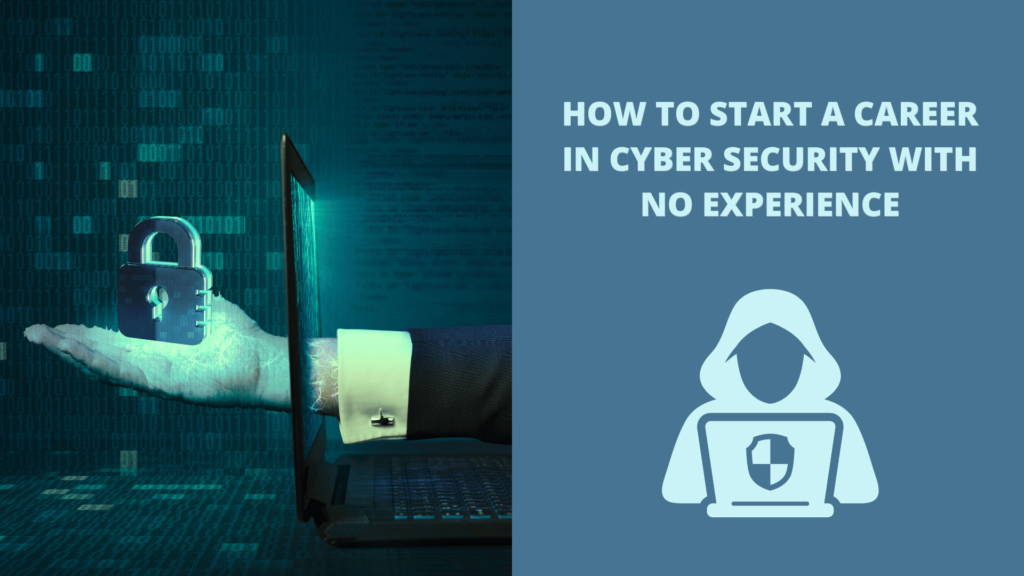Contents
- 1 1. Understanding Cybersecurity: A Prerequisite
- 2 2. Building the Foundation: Learning the Basics
- 3 3. The Power of Certifications: Enhancing Your Credibility
- 4 4. Crafting Your Virtual Identity: Online Presence Matters
- 5 5. Networking: Weaving Professional Relationships
- 6 6. Tailoring Your Resume: Showcasing Relevant Skills
- 7 7. Gaining Experience: Internships and Entry-Level Positions
- 8 8. Navigating the Interview Process: Confidence is Key
- 9 9. Continuous Learning: Staying Updated in a Dynamic Field
- 10 10. A Secure Future: Forging Your Path in Cybersecurity
- 11 FAQs: Addressing Your Concerns
- 12 In Conclusion: Paving Your Path to Cybersecurity Excellence
1. Understanding Cybersecurity: A Prerequisite
When it comes to cybersecurity, even if you’re starting from scratch, it’s essential to grasp the foundational concepts. Cybersecurity is not just about hacking and technical jargon; it’s about safeguarding digital information from unauthorized access, data breaches, and other malicious activities. Familiarize yourself with terms like firewalls, encryption, malware, and phishing to build your knowledge base. Resources like Cybrary and Coursera offer introductory courses to get you started.
2. Building the Foundation: Learning the Basics
Learning the basics is akin to teaching your pet new tricks – it requires patience, dedication, and repetition. Begin with online tutorials and free courses covering networking, operating systems, and primary programming languages. Platforms like Khan Academy, Designs Valley, and edX provide comprehensive lessons for beginners.
3. The Power of Certifications: Enhancing Your Credibility
Certifications act as badges of proficiency in the cybersecurity realm. They display your commitment and competence to potential employers. Acquiring certifications like CompTIA Security+, Certified Information Systems Security Professional (CISSP), and Certified Ethical Hacker (CEH) can significantly boost your credibility. Prepare diligently using resources from the Official CISSP Study Guide and CEH Exam Prep.
4. Crafting Your Virtual Identity: Online Presence Matters
Much like how your pet’s online profile showcases their unique personality, your virtual presence reflects your expertise and passion for cybersecurity. Create a professional LinkedIn profile highlighting your skills, certifications, and any cybersecurity-related projects you’ve undertaken. Engage in relevant discussions and share insightful content demonstrating your commitment to the field.
5. Networking: Weaving Professional Relationships
Networking is the treat your pet eagerly anticipates – it opens doors to opportunities and connections. Attend cybersecurity conferences, webinars, and local meetups to interact with professionals in the field. Platforms like Meetup and Eventbrite can help you discover relevant events.
6. Tailoring Your Resume: Showcasing Relevant Skills
As you highlight your pet’s exceptional traits on their adoption profile, your resume should showcase your cybersecurity skills and achievements. Tailor your resume for each application, emphasizing relevant experiences and certifications. Use action verbs like “implemented,” “analyzed,” and “solved” to describe your accomplishments.
7. Gaining Experience: Internships and Entry-Level Positions
Securing an internship or entry-level position is like adopting a new pet – it’s a rewarding learning experience. Look for roles like security analyst, junior penetration tester, or IT support with a cybersecurity focus. Websites like Indeed and LinkedIn Job Search can be valuable resources.
Facing an interview can be as nerve-wracking as your pet’s first visit to the vet. Remember, preparation is your best friend. Research common interview questions in cybersecurity and practice your responses. Highlight your passion, problem-solving abilities, and willingness to learn during the interview.
9. Continuous Learning: Staying Updated in a Dynamic Field
Cybersecurity is akin to the ever-evolving nature of your pet’s needs. Stay updated with the latest trends, threats, and technologies. Follow cybersecurity blogs, podcasts, and news outlets to remain informed. Websites like Threatpost and Dark Reading provide valuable insights.
10. A Secure Future: Forging Your Path in Cybersecurity
As you progress in your career, envision your path as nurturing a strong bond with your pet. Specialize in areas that intrigue you – ethical hacking, cloud security, or risk management. To unlock higher-level opportunities, pursue advanced certifications like Certified Information Security Manager (CISM) or Certified Cloud Security Professional (CCSP).
FAQs: Addressing Your Concerns
Q1: Can I enter cybersecurity without a technical background? Absolutely! While a technical background can be advantageous, many roles value problem-solving skills, attention to detail, and a strong willingness to learn. Start with foundational courses and gradually build your technical skills.
Q2: How long does it take to start a cybersecurity career? The timeline varies based on your dedication, resources, and prior knowledge. Some individuals transition within a year, while others may take longer. Consistency is key.
Q3: Are there cybersecurity roles that don’t require coding? Certainly! While coding can be beneficial, roles like cybersecurity analyst, risk assessor, and compliance specialist often focus more on policy, analysis, and risk management.
Q4: What if I can’t afford expensive certifications? Many resources offer accessible or affordable courses. Additionally, some employers may sponsor certificates for their employees as they recognize the value of an educated cybersecurity workforce.
Q5: How do I stay motivated during the learning process? Set achievable goals, celebrate small victories, and remind yourself of your end goal – a rewarding and impactful career in cybersecurity.
In Conclusion: Paving Your Path to Cybersecurity Excellence
Embarking on a cybersecurity career with no prior experience is like adopting a rescue pet – it requires patience, dedication, and a deep commitment. As you learn, grow, and adapt, remember that every step you take brings you closer to safeguarding the digital world, much like how you protect and care for your beloved pets. By following this guide, you’re setting out on a new professional journey and becoming a cyber guardian in an increasingly interconnected landscape. So take




